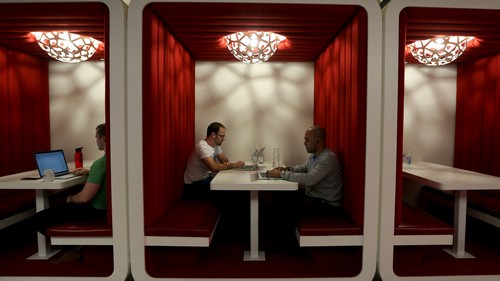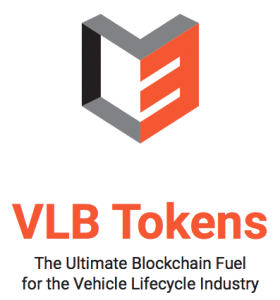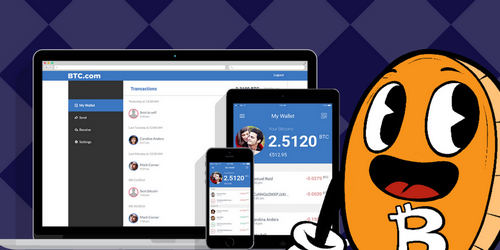Granted, those were not firm-sanctioned benefits. One trailblazing corporate partner constantly took it upon himself to influence the firm culture in interesting ways. Head hunting with common office supplies was among them.
Meanwhile, the firm, a very well-known corporate firm, proud of its meritocratic culture, endured difficult personalities. Back then, partners who produced could get away with abhorrent behavior.
In return for all that work, you received a nice salary for a 20-something. My firm doled out other “benefits”, such as having staplers thrown at you and verbal beatings of the “Did you f-in’ go to law school?” variety. I count both of those experiences among my junior associate memories.
I recall a Saturday night where I missed my own birthday party. I worked past midnight that Saturday, pushing 16 hours total. Seventy hours week in and week out was about average, although 100 hour weeks were not noteworthy.
I am told associate life there has changed, which is good because, aside from decent money and another impressive name on the resume, I didn’t see much reason to be there. I certainly didn’t want to be there. And, with only 8% of junior associates eventually making it through to partnership, the cost-benefit reward ratio seemed to me radically skewed against paying the price. I had one foot out the door before both were in. When I was recruited away in 2000, I jumped at the opportunity.

So, millennials are passing up deals like the one I reluctantly accepted and quickly jettisoned? Crazy. How could they? What is the world coming to?
Rethinking the label we hang on the upcoming generation
I realize not every entry-level job carries a significant risk of being hit in the head by a stapler. However, entry-level jobs have historically been offered by employers on a take it or leave it basis. You have to pay your dues. Deal with it.
Back in my dad’s day, employers had that attitude with just about every job, not only the entry-level ones. You were happy to have a job and you did whatever you had to do to keep it. It was even more so in his dad’s day. My paternal grandfather, John Cenkus, went to the same job every day for 18 years. He didn’t call in sick once. Not once. He worked on an assembly line and he always showed up on time. That is, until he broke his arm playing in a weekend ballgame. He was out for a few weeks with no insurance or workers’ comp. The company fired him. He never fully recovered from that experience and the later years of his life were a struggle. Ahhh, the good ol’ days …
Most grandfathers’ story is a sad one, although it is not shocking. It reflects the way the workplace was 50 years ago. A similar fact pattern is unlikely to play out in the same manner today.
Besides the Family and Medical Leave Act (which would not have saved my grandfather’s job) and other similar state laws, we have much greater employee bargaining power and more well-established communication channels to shine a light on injustice. Additionally, I believe there is evidence that we are witnessing a measurable, albeit slow and not perfectly linear, progression toward a more compassionate world. I am far closer to a Libertarian than a Social Democrat, although I count all of these things as improvements.
Those in the corner offices today, those who “paid their dues” at one point in time, want to believe everyone needs to do exactly what they did. That’s an understandable view. It’s also largely incorrect. Thankfully.
The rules have changed and millennials know it
The rules have changed, and they will keep changing. The days of the whole lifetime employment thing (you know, the pact that America’s finest companies struck with the baby boomers) are over-long over. We left them back in the 80s with big hair metal bands and neon spandex-filled exercise VHS tapes.
Companies, always slow to evolve, widely continued to serve up jobs in the 90’s as though the pact was never broken. Take it or leave it, you’re lucky to have this job. Most workers accepted that deal. For a while.
Fast forward 20+ years and the world has empowered workers to the point where they can tell employers to keep their lousy jobs. Millennials are generally unwilling to work for start-at-the-bottom (and likely finish there), lucky-to-have-this-job types of opportunities. They are not like I was, and they shouldn’t be. The workplace is becoming a better place, at least it is if you value empowerment and a leveling of the playing field.
There are a few go-to authorities if you want to gain some perspective on how the business world is changing around you. One of my favorites is Seth Godin. Describing almost all of us 20 years ago, Godin writes in The Icarus Deception,
“The unsure employee is putty in the hands of the manager seeking to give directions. When you decide you’re not talented enough or not ready to speak up, when you buy the line about not being well trained or well born enough to make a difference, you cede your power to those in authority.”
Seth is not describing work ethic. He is describing conformity; conformity, in most cases, to a value system of endless hours at the office at the expense of our personal lives. Worst of all, our efforts were not met, in most cases, with a corresponding likelihood of those efforts returning what we were chasing-partnership, a corner office, a huge slug of equity that gets cashed out when the company is sold…In some cases, the effort panned out. In most, it did not.
Learning lessons the hard way
The millennials want a different deal and they are going to get it. If you are managing millennials and want to complain and reminisce, that’s your right. If you want to be solution-oriented, it’s time to turn the lens inward.
If no one is responding to you in the way that you want, you are likely the source of the problem. I learned this business lesson, like too many others, through personal struggle. Circa 2004, my partner and I were about two years into building our company. We had a lot going for us, but there was a troubling trend in our less than stellar ability to hold on to salespeople.
At one point, my partner and I turned the issue over and over during a weekend getaway. We were cycling through the memories of all the salespeople we’d hired, those we’d fired, and those who had left on their own. We reckoned we had run through hundreds and hundreds of salespeople in two years. I’d like to say that we were able to realize our role in the problem during that weekend getaway, although we didn’t.
Most of our time that weekend was spent complaining about how the salespeople just didn’t see what a great opportunity we offered. It wasn’t until a mass exodus occurred a short time later that the thought finally occurred to us…hmm, maybe we should adjust what we’re doing.
Einstein once said that the definition of insanity is doing the same thing over and over and expecting different results. I think that’s a terrible definition of insanity. Futility, perhaps, but not insanity. We all often do the same things over and over and hope that the outcome will be different. That’s part of the human condition. Fortunately, unlike insanity, it can be cured.
The glass is always half full
Frustrated by your inability to manage millennials? Start here. They don’t need your job. It has never been easier to work for yourself or any one of a thousand other companies, no matter where you live.
Millennials aren’t entitled. They are empowered, and more so than any other generation before them. They want more out of life than you ever did, and they will get a lot of what they are seeking. That doesn’t make them better or worse, it just means that life is different now. We are growing and evolving. Why should millennials work as hard as we did? No, scratch that. Why should millennials work as hard as we did for an empty promise when they have the capability to get exactly what they want?
Millennials have infinitely more opportunities than previous generations entering the workplace. We are getting more mobile, more virtual, and the playing field is leveling between large, established companies and upstarts. As an aside, the companies, always resistant to change and playing every card they have in their hand, are pushing back in all sorts of ways. One of those ways is by championing the seemingly pro-worker cause to require that companies classify more workers as employees rather than independent contractors. I believe that workers should instead fight for their right to freelance.
That does not mean every millennial will launch their own company. The vast majority are looking for jobs. Jobs that stretch and inspire them. The fact that they have access to so many jobs cuts both ways. The pool of talent employers can pull from today is much wider and deeper than it was a generation ago.
To compete for that talent, employers need to step up their game. I recently read that a lab equipment supply company in North Carolina named Practichem is giving all employees a Tesla Model 3. The company will pay the lease payment and the employee gets to drive the car full-time for as long as she works at the company. As you might suspect, that particular recruiting tactic has resulted in a flood of resumes.
What millennial workers are looking for
Millennials reject the notion of “face time” as a means of success. They expect assignments, regular feedback, and rewards for their efforts. They also want some semblance of work-life balance. They appear to fully grasp what my generation acknowledged only through lip service-life is too short to spend it all working. They expect that when the time comes to start having families, they will be able to be active and engaged parents, which means having the time to be able to do so. They realize that we have been getting wealthier and wealthier as a society, while happiness with our lifestyle and work-life balance lags behind.
With that said, millennials desire more than just money, material goods, and time off. More than any previous generation, they are in search of meaning in their work. The likelihood of a millennial staying in a work environment in which they are not shown the bigger picture or the opportunities that lie ahead for them are slim. While not every job lends itself to interaction with the C-Suite and a straight upward linear path of increasing responsibility, every job can be made more interesting.
Hiring entry level employees? Try these ideas:
- Give them a little training on your products-not just how to do the minutia of their daily job, but insight into how the products are made, how they help people, your margins.
- Explain in detail why you do things the way you do. Nothing is more common and more frustrating than the “because that’s the way we do it around here” response when someone is struggling to understand the reason for a particular system or procedure.
- Open your books. I know, that terrifies you. It’s the future.
- Send them for a paid day to a conference. Conferences are only partially boondoggles. Your workers are likely to learn a little something and to return recharged. When your job never takes you outside the office, a reason to be outside the office is empowering. The job immediately feels more important.
- Allow the employees to set their own group target goals. You may be surprised by how they stretch themselves.
The options are endless. You won’t turn that call center job into anyone’s dream job and plenty of prospective employees will pass it up anyway. Still, it won’t take much to attract a few extra prospects here and there and to keep the ones you do hire around and engaged a while longer.
Millennials are pointing the way toward a brighter future
The millennials’ expectations for an ideal working environment actually translate into the fundamentals of a better workplace for all of us. An organization that carefully trains all of its employees, sets clear goals and expectations, and provides regular feedback to ensure that individuals learn with each assignment is a model for success. That company is better positioned to compete in an increasingly competitive global market.
There are 75.3 million millennials currently in the US workforce. That means there are 75.3 million unique personalities. And, yes, some of them are entitled; some of them are lazy; and many of them are possessed by the delusion and brashness of youth (no different than any generation prior).
But, broadly speaking, they are empowered, ready to work, and anxious to make a real impact on our world. The 75.3 million unique attitudes and approaches they are bringing to the table are the future. That’s how this story goes. You can’t ignore them. And, complaining about them does nothing. It’s time to stretch ourselves, change and evolve. The “good new days” are just ahead.


